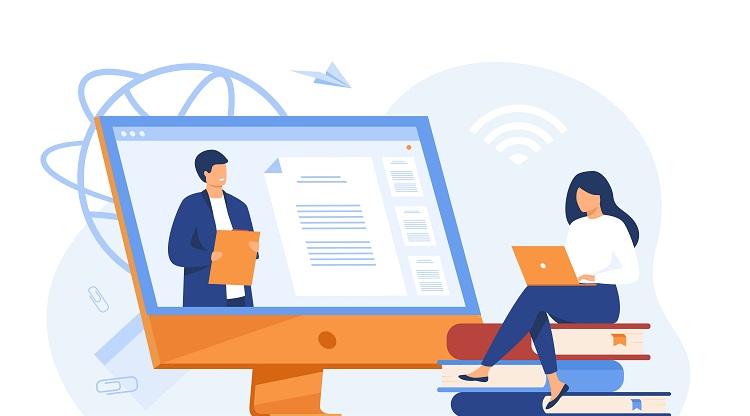Five Benefits of Online Learning
Online Learning

Five Benefits of Online Learning
Courses that allow students to access learning materials and communicate and work with teachers and classmates online tend to be more adaptable, engaging, and inspiring for students. Thanks to digital education, there is more opportunity for attractive, individualized, and self-directed study, which may increase access to online learning for underserved populations.
Must Visit This Site To Learn Comparisons among various terms.
This article will list ten benefits of online learning.
1) Tailored instruction
With individualized education, classes are designed around each student’s specific requirements. This may refer to the tempo, the subject matter, or the method of presentation. It acknowledges the fact that there is no universally applicable educational model. Everyone has different requirements and reacts differently to written, oral, and visual forms of communication. After all, every student will study in their unique style and at their own pace.
The virtual classroom is a great location to provide students with individualized instruction. Researchers at the Bill & Melinda Gates Foundation found that a “huge majority” of educators agree that data and digital technologies are “enhancing instruction via differentiation and personalization.”
Today’s learning platforms provide an environment where students may find and pursue their learning paths. For instance, if students are having trouble with a particular concept, the system may automatically direct them to further materials. For another student already well-versed in the topic, any other material would be a waste of time. By customizing lessons for each student, teachers may better address their needs and improve outcomes.
2) The Use of Games
Using gamification, which draws on concepts already recognizable to technology users, allows for more exciting and adequate educational opportunities. Many students may already be acquainted with the simple digital tools used in gaming, and they can be included in the design of courses to engage students via prizes and immediate feedback.
The educational system may benefit by borrowing ideas from the gaming paradigm. Badges and point systems are one example. Students will progress regularly, and praising their efforts will encourage them to keep going. When students have a clear path laid out for them and are recognized for completing significant assignments, they have something to work for.
Rewarding positive learning behaviors like debate and independent inquiry, as well as test results, is possible in a games-based learning environment.
3) Self-study
Students will need to develop skills in self-directed studying as they advance in their studies. Specifically, we’re talking about the students’ capacity to organize their time, find relevant information, and take charge of their education.
Learning when and how they retain information best is something they will figure out along the road. As a result, students will be better able to plan how to use their study time efficiently. One person could be most productive studying first thing in the morning, while another would do better studying later.
The ability to take charge, schedule time effectively, and achieve goals is valuable in any field. Students will benefit significantly from learning practical time management skills before entering the workforce.
Each student’s educational experience is unique, and a digital learning platform is a perfect place to start. Students may check their timetables, see their obligations over time, and plot out their next steps in that location.
4) More convenient to use
The ability to get an education is facilitated by online learning for students who may otherwise be unable to do so. This is especially helpful for students living in distant areas with limited access to transportation and other educational resources. Also, students who have to balance schoolwork with a job, caring for relatives, or other commitments will value solutions that make it easier for them to do so.
Everyone must have access to education, yet not everyone can study at the same time or in the same place. Thanks to technological advancements, the distance between students and their instructors is no longer an issue in the classroom. When students cannot physically attend a school of higher education, they still have access to all the necessary course materials via the online learning platform.
The online learning environment facilitates discussion boards, tutorials, and feedback, allowing for high levels of involvement and collaboration regardless of whether learning is conducted entirely online or in a hybrid format.
5) Individualized learning plans for each student.
Students may study at their speed thanks to online courses’ flexible scheduling and portability. They may go back to the beginning of the system and reread modules to dig into the subject and have a firm grasp of the concepts.
Students have access to the learning platform around the clock, with resources like recorded lectures available whenever they need them. When an address concludes, the information is not lost.
Successful learning outcomes, student motivation and engagement, and avoiding an “edtech reality gap” may all be improved via self-directed, individualized learning where students work at their speed.